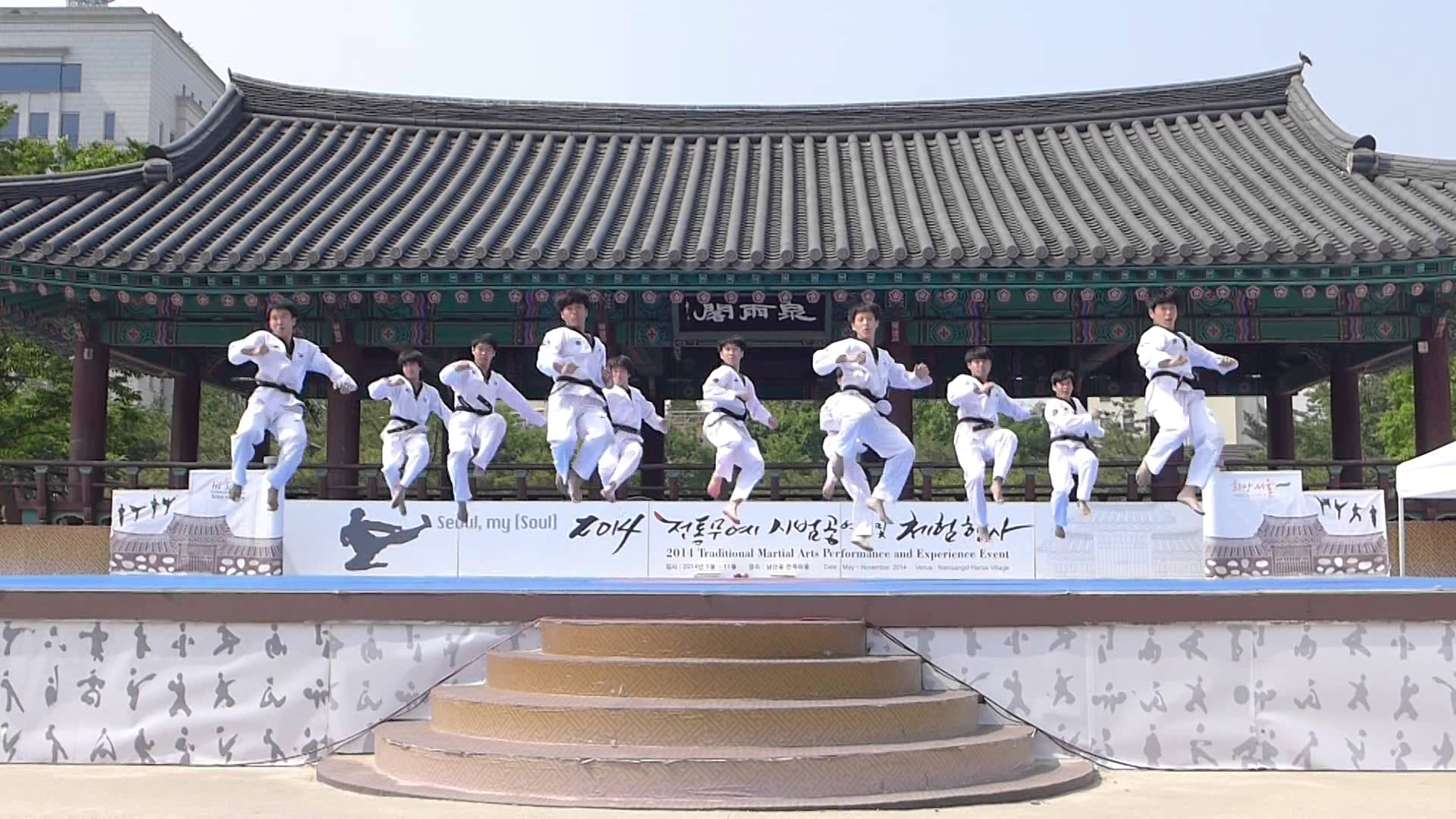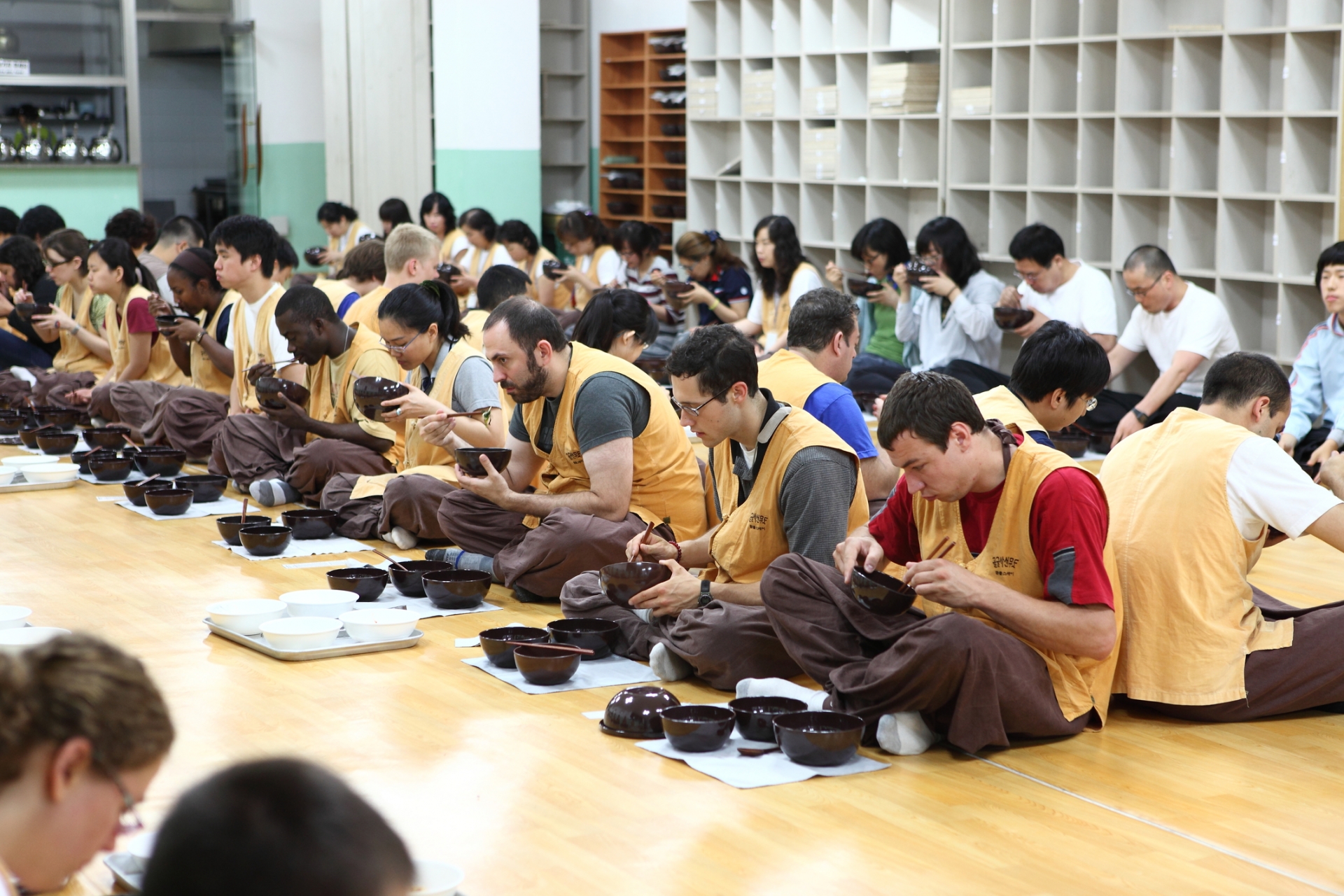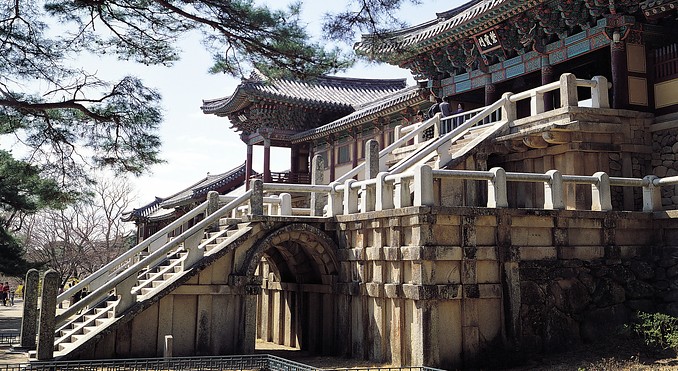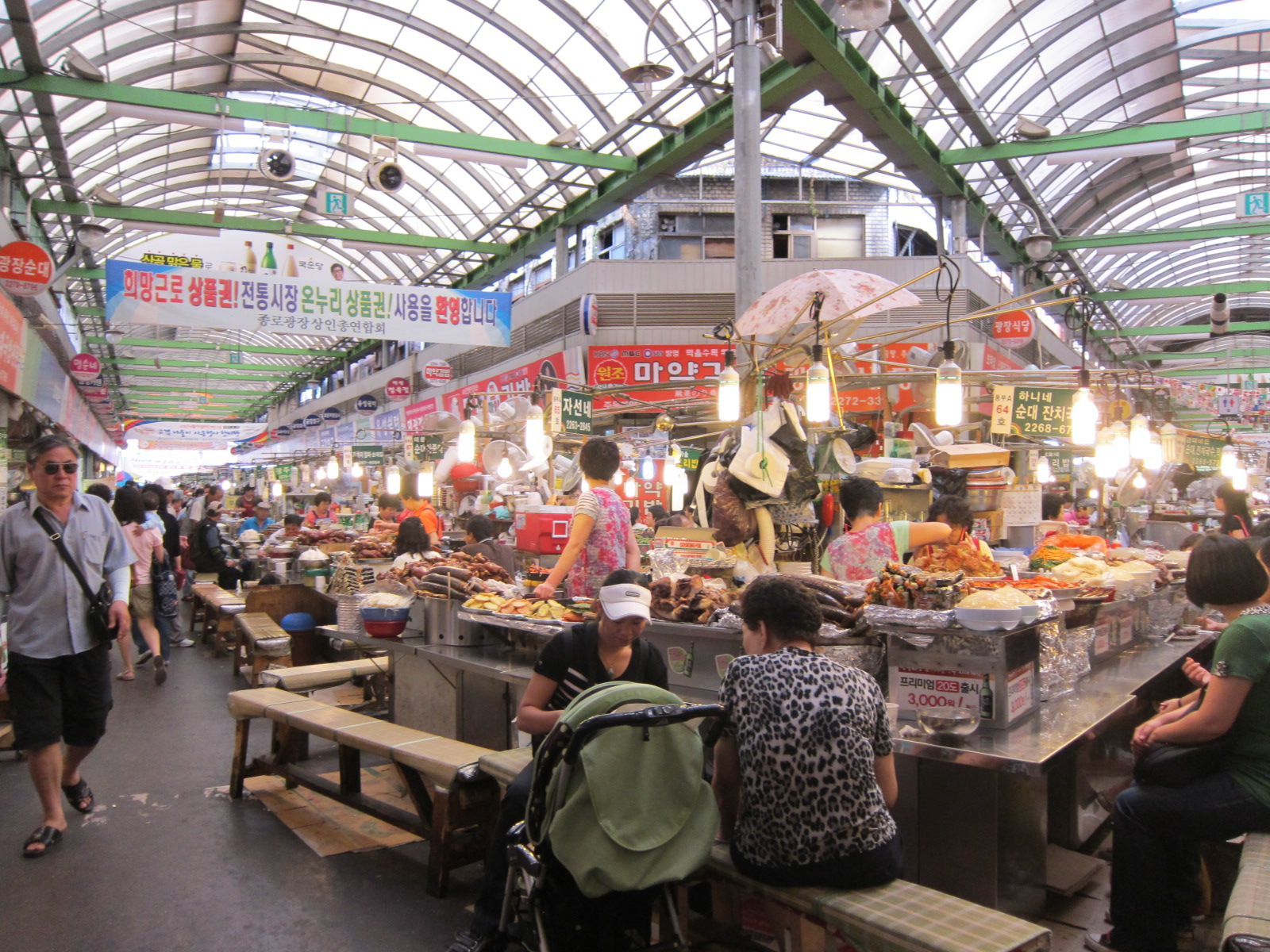| Day-1 : Seoul |
|
Arrival in Seoul
- Meet our guide at the airport and transfer to Seoul
- Visit Seoul Tower - officially the YTN Seoul Tower and commonly known as the Namsan Tower or Seoul Tower, is a communication and observation tower located on Namsan Mountain in central Seoul. It marks the highest point in Seoul.
- Hotel check-in and rest
|
| Day-2 : Seoul |
-
Breakfast in the hotel
- Visit Kukkiwon(Memorial Hall) also known as World Taekwondo Headquarters, and home of the World Taekwondo Academy, is the official taekwondo governing organisation established by the South Korean government
- Visit Gyeongbokgung Palace, which served as the main palace of Joseon Dynasty (1392-1910), Korea’s last dynasty. First constructed in 1395, later burned and abandoned for almost three centuries, and then reconstructed in 1867, it was the main and largest palace of the Five Grand Palaces built by the Joseon Dynasty. The name means "Palace" [Gung] "Greatly Blessed by Heaven" [Gyeongbok].
- Stroll down Insadong Antique Street which is filled with art galleries, traditional craft stores, antique shops, traditional tea houses and restaurants
- Check out Myeongdong area/ It covers 0.99 km² with a population of 3,409 and is mostly a commercial area, being one of Seoul's main shopping and tourism districts.
In 2011, 2012 and 2013, Myeong-dong was listed as the ninth most expensive shopping street in the world
- Enjoy Namdaemun Market, the largest conventional market in the country, which boasts various merchandise including clothing, leather goods, shoes, accessories and gift items, etc.
- Visit Jump Performance
- Back to the hotel
|
| Day-3: Seoul-Suwon-Gyeongju |
|
Temple stay
-
Breakfast in the hotel
- Transfer to Suwon and visit Hwaseong Fortress[UNESCO Heritage] designed to serve political and commercial as well as military functions and is a fine example of oriental fortresses. Hwaseong Fortress is an impressive structure from the latter part of the Joseon Dynasty (1392-1910). The fortress (constructed from 1794 to 1796) was built as a show of the King’s filial piety towards his father Jangheonseja and to build a new pioneer city with its own economic power
The fortress wall stretches for a total of 5.52km and has a great variety of military facilities that’s hard to find anywhere else
- enjoy Muye 24 Ki- traditional martial arts of Korea
- Leave for Gyeongju which was served as the capital of Silla Kingdom(57BC-935AD). The entire city of Gyeongju is a living history museum containing the remnants of the Silla Kingdom as well as relics pertaining to Buddhism, the national religion at the time
- Enjoy Temple stay program in Golgulsa Temple
- Dinner (Communal Buddhist Meal)
- Barugongyang is a unique and special way of eating in Korean Temples. At this communal meal practice the meal is eaten in total silence, and not a single grain of rice is wasted.
- Ceremonial Service - Evening Yebul. Yebul is a Ceremonial Service to praise Buddha. This solemn ceremonial service is held 3 times a day; in the morning, midday and evening helping to clear one’s mind.
- Seonmudo Training (90 minutes). Seonmudo is composed of two kinds of training. One is still training : Zen-Yoga, Zen-gigong, etc. And the other is active training : Zen-gymnastics, Zen-martial arts, etc. There is usually still training in the morning and active training in the evening.
|
| Day-4 : Gyeongju |
-
Continue the Temple stay program
- Wake up
- Morning chanting- Morning Yebul
- Sitting Meditation & Walking Meditation
- Breakfast (Communal Buddhist Meal Service)
- Seonmudo Training (90 minutes)
- Devotional Ceremony
(108 Bows to the Buddha & Sitting Meditation). Making 108 bows to the Buddha can be a strenuous liberation experience. During this Zen practice, we reflect on our lives, acknowledge mistakes and refresh our resolve to live truly.
- Sunmudo demonstration
- Lunch (Communal Buddhist Meal Service)
- End of temple stay program
- Visit two magnificent temples both of which are enlisted to World Cultural Heritage List by UNESCO
- Seokguram Grotto; one of Asia’s finest Buddhist shrines surrounded by Bodhisattva, disciples, devas and guardian king;
- Bulguksa Temple, an architectural masterpiece built during the glorious period of Silla Kingdom.
- Visit Daereungwon Tumuli Park; a collection of royal Silla tombs, and Anapji Pond in the evening where the Silla royal family relaxed and enjoyed themselves.
- Hotel check in and rest
|
|
Day-5: Gyeongju-Muju
|
Taekwondo training camp
-
Breakfast in the hotel
- Transfer to Muju that is known for its Muju Firefly Festival and is considered the most popular tourism area
- visit Taekwondowon Park. The Taekwondo Park in Muju, whose ground-breaking ceremony took place on Sept. 4, 2009, houses the World Taekwondo Academy, a global taekwondo education and research center designated by the World Taekwondo Federation
- Participate in 2 days1night Taekwondo Training Camp Program(To be advised). If not possible due to the local circumstances, visit Taekwondo park and Taekwondo training in Seoul
OVERNIGHT: Muju Taekwondowon Training Center
|
|
Day-6 : Muju-Seoul
|
-
Breakfast in the hotel
- Continue the morning Taekwondo Training Camp Program
- Lunch
- Transfer to Seoul
- Visit Dongdaemun Market for your last shopping. Dongdaemun is a large commercial district comprising traditional markets and shopping centers in Jongno-gu, Seoul.The market sells all types of goods but notably silks and fabric, clothes, shoes and leather goods, sporting goods, plumbing and electronics, office supplies, fortune tellers, toys and food areas specialising in Korean cuisine. It also has many pet shops
- Hotel check in and rest
|
|
Day-7 : Seoul
|
-
Breakfast in the hotel
- Hotel check out
- Transfer to the airport for your departure
- End of service
|



















